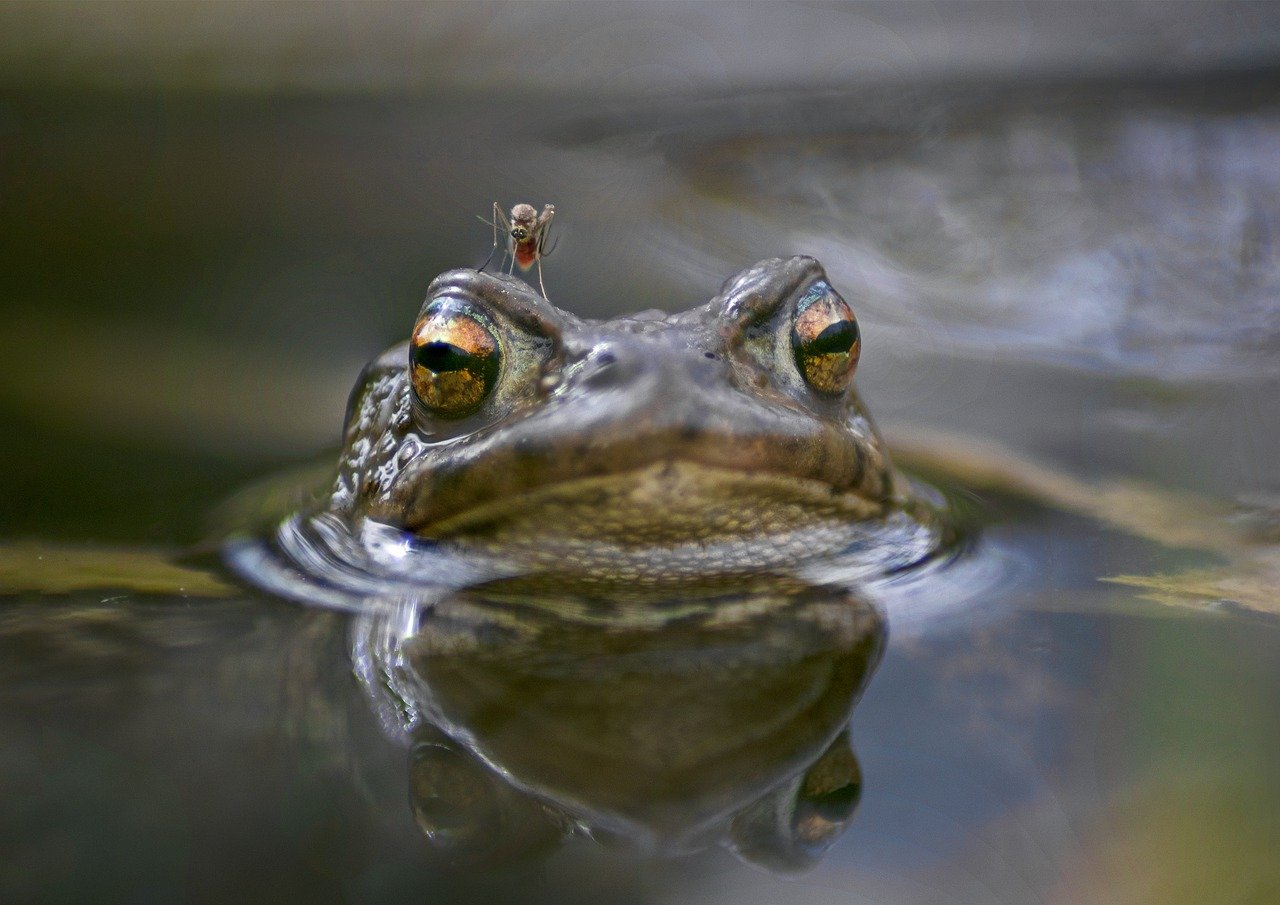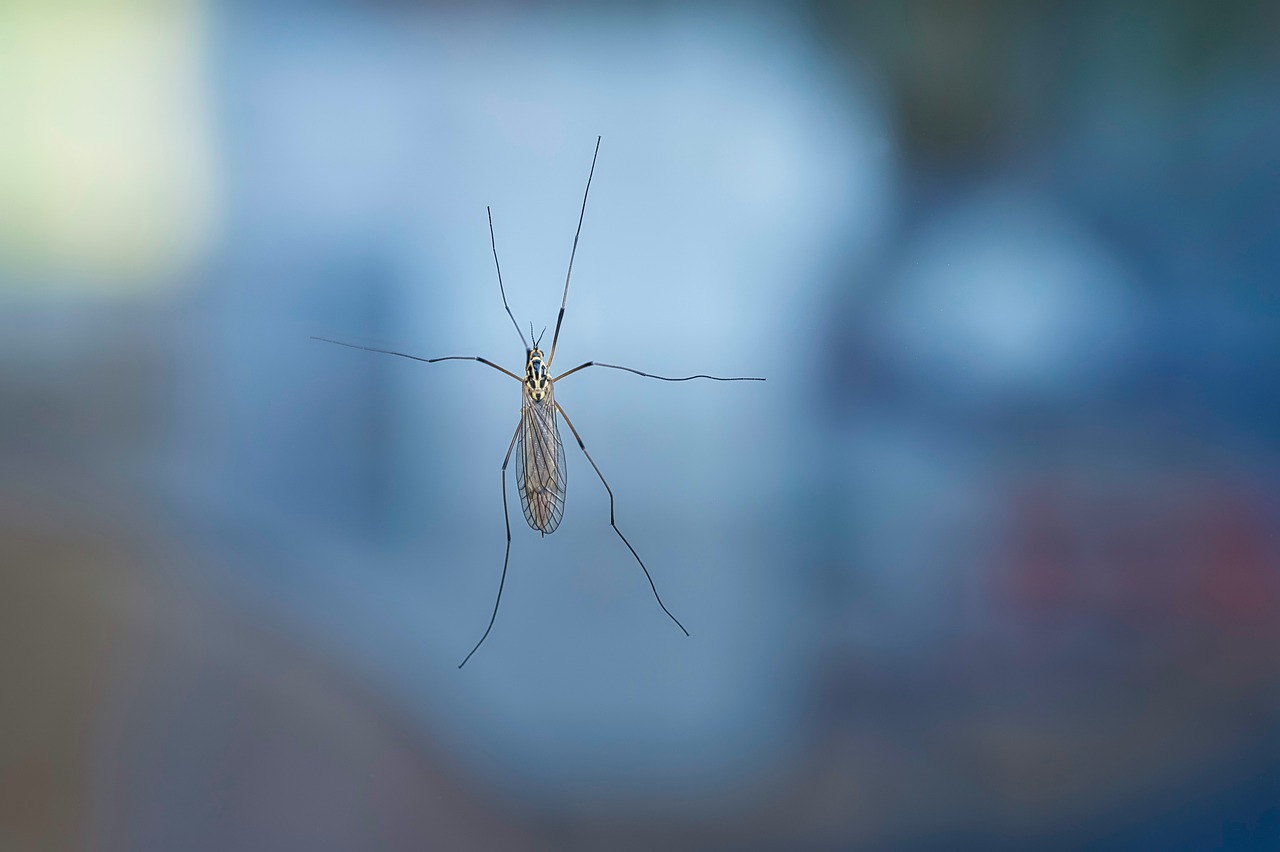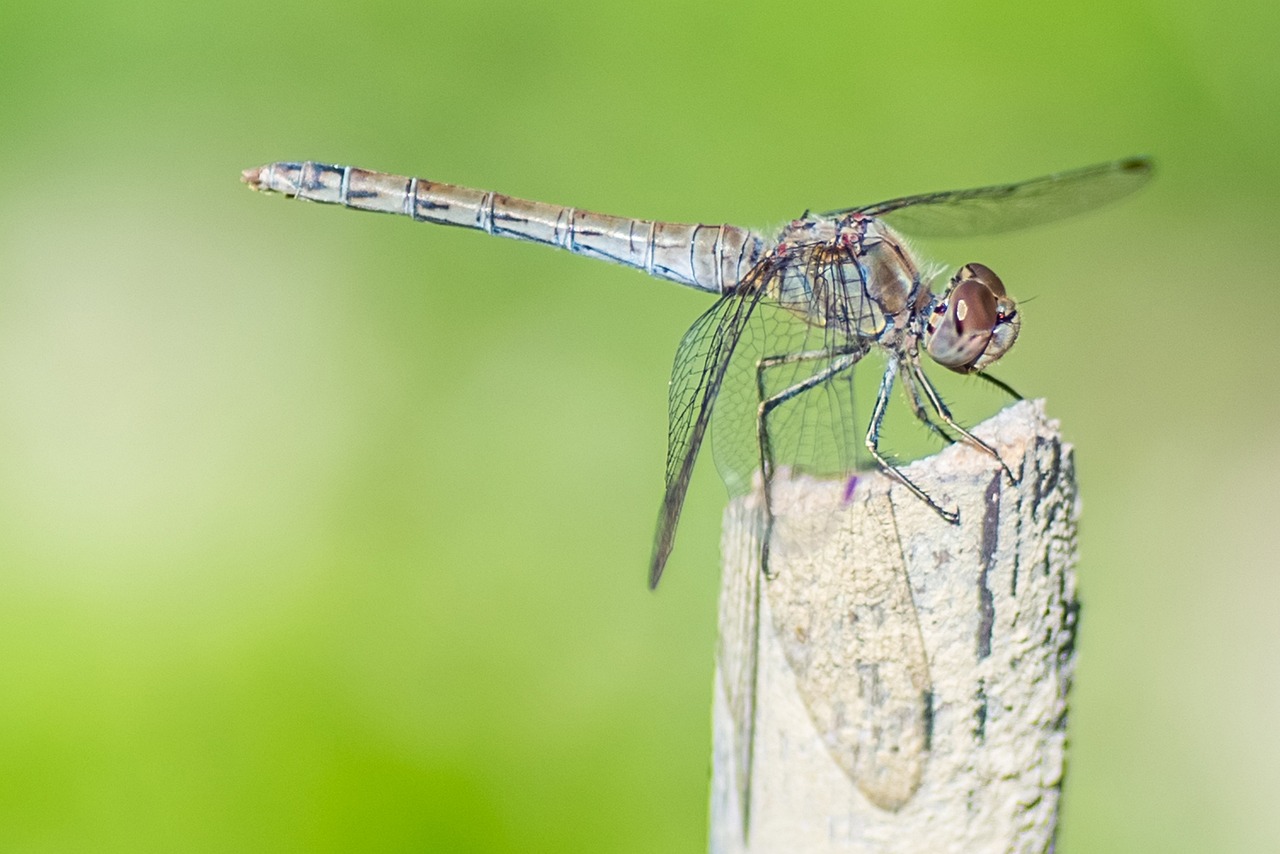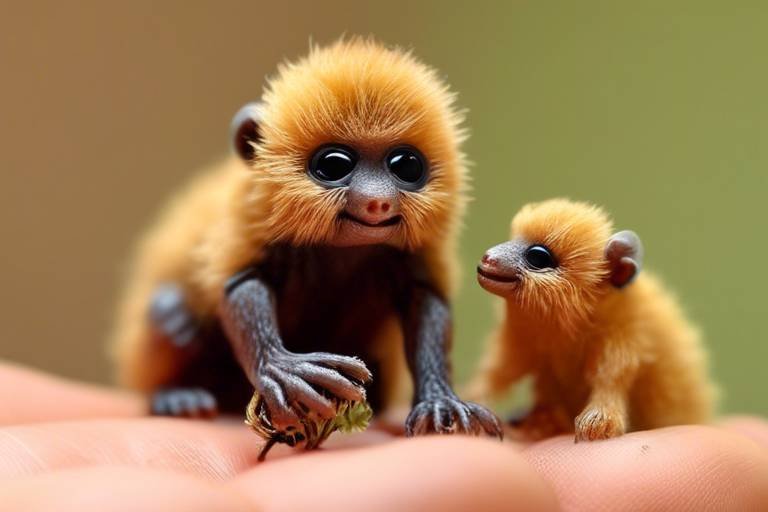A World Without Mosquitoes - The Ethics of Species Eradication
Imagine a world where the buzzing sound of mosquitoes is nothing but a distant memory. A world where children can play outside without the fear of itchy bites or the looming threat of deadly diseases. The thought of eradicating mosquitoes might seem like a dream come true for many, especially those living in areas plagued by mosquito-borne illnesses. However, as we delve deeper into this topic, we realize that the implications of such an action are far more complex than they appear at first glance. This article explores the multifaceted implications of eradicating mosquitoes, weighing the potential benefits to human health against the ethical concerns surrounding the extinction of an entire species.
To truly understand the ramifications of eradicating mosquitoes, we must first acknowledge their role in ecosystems. Mosquitoes are not just pesky insects; they play a vital part in various ecological processes. For instance, they serve as a food source for numerous animals, including birds, bats, and amphibians. Removing them could disrupt the food web, leading to unforeseen consequences for other species that rely on them for survival. Additionally, some species of mosquitoes are pollinators, contributing to the reproduction of certain plants. The intricate balance of our ecosystems means that the loss of one species can have a domino effect, impacting biodiversity and ecological health.
On the flip side, mosquitoes are notorious for being vectors of several deadly diseases, including malaria, dengue fever, and Zika virus. These diseases affect millions of people globally, causing severe health complications and even death. The potential benefits of eradicating mosquitoes could be monumental in terms of public health. Imagine a world where diseases like malaria are no longer a threat; the improvement in quality of life and economic productivity could be staggering. It's a compelling argument for those advocating for mosquito eradication, but we must tread carefully.
To grasp the urgency of the situation, let’s look at some alarming statistics:
| Disease | Annual Cases (Approx.) | Deaths (Approx.) |
|---|---|---|
| Malaria | 229 million | 409,000 |
| Dengue Fever | 390 million | 25,000 |
| Zika Virus | Estimated 1.5 million | N/A |
These figures highlight the urgent need for effective mosquito control measures. While eradication may seem like a drastic solution, it could significantly impact global health outcomes by reducing transmission rates and protecting vulnerable populations.
Beyond the health implications, the economic burden of mosquito-borne diseases cannot be overlooked. Healthcare systems worldwide face immense pressure due to the costs associated with treating these diseases. In many regions, the economic impact includes:
- Increased healthcare spending
- Loss of productivity due to illness
- Expenditure on prevention measures
Eradicating mosquitoes could alleviate these financial strains, providing a strong economic rationale for pursuing such measures.
Historically, there have been successful examples of mosquito population control, such as the eradication of the local population of the Aedes aegypti mosquito in certain areas. These initiatives have led to significant reductions in disease incidence, providing valuable lessons on the potential effectiveness of eradication efforts. However, each case also serves as a reminder of the complexities involved, as the long-term ecological impacts and potential for resistance must be considered.
The ethics of species eradication raise complex questions. Is it justifiable to remove a species from existence for the benefit of human health? While the potential to save millions of lives is compelling, we must also consider our moral responsibilities to the planet and its ecosystems. The debate often centers around the balance between human benefits and ecological integrity. Are we playing God by deciding which species should thrive and which should vanish?
Before jumping to eradication as a solution, it’s crucial to explore alternative strategies. Integrated pest management, which combines biological control, habitat manipulation, and responsible pesticide use, offers a more sustainable approach. Additionally, genetic modification techniques, such as gene drive technology, are being researched to reduce mosquito populations without complete extinction, potentially allowing ecosystems to maintain their balance.
Introducing natural predators is one such biological control method. For instance, certain fish species feed on mosquito larvae, helping to manage their populations effectively. These methods not only address the mosquito problem but also preserve the ecological balance, showcasing that there are viable alternatives to outright eradication.
Genetic engineering is another promising area of research. By modifying mosquitoes to reduce their ability to transmit diseases or to decrease their populations, we can tackle the problem at its source. However, this approach also raises ethical questions about altering the genetic makeup of a species and the potential long-term effects on ecosystems.
- What diseases are primarily transmitted by mosquitoes? Mosquitoes are known to transmit diseases such as malaria, dengue fever, Zika virus, and West Nile virus.
- Can we completely eradicate mosquitoes? While it’s theoretically possible, complete eradication could have unforeseen ecological consequences.
- What are the alternatives to mosquito eradication? Alternatives include integrated pest management and genetic engineering approaches to control populations without extinction.
- How do mosquitoes contribute to ecosystems? Mosquitoes serve as food for various animals and play a role in pollination.

The Role of Mosquitoes in Ecosystems
When we think of mosquitoes, the first things that come to mind are often itchy bites and the diseases they transmit. However, these tiny creatures play a surprisingly complex role in ecosystems that goes beyond being mere pests. Mosquitoes are not just nuisances; they are integral to various food webs and contribute to the pollination of certain plants. Imagine a world where these tiny insects are completely erased—what would that mean for the delicate balance of nature?
In many ecosystems, mosquitoes serve as a vital food source for a variety of animals. Birds, bats, amphibians, and even some fish depend on mosquitoes and their larvae for nourishment. For instance, many species of birds rely heavily on mosquito larvae as a primary food source during their breeding seasons. If mosquitoes were to vanish, it could lead to a cascading effect, disrupting the diets of these predators and potentially leading to declines in their populations. This raises the question: can we truly afford to lose such a key player in the food chain?
Moreover, mosquitoes are also involved in pollination. While they are not the primary pollinators for most plants, they do contribute to the reproduction of certain flowers, particularly those that bloom in wet environments. Some plants rely on mosquitoes to transfer pollen, thus ensuring their survival and reproduction. If we were to eradicate mosquitoes entirely, we might inadvertently wipe out plant species that depend on them, leading to a reduction in plant diversity and the animals that rely on those plants for food and shelter.
To illustrate the interconnectedness of species, consider the following table that summarizes the roles of mosquitoes in various ecosystems:
| Role | Examples of Dependents | Potential Consequences of Eradication |
|---|---|---|
| Food Source | Birds, Bats, Fish | Population declines in predators |
| Pollination | Certain Wetland Plants | Loss of plant diversity |
| Ecological Balance | Insectivorous Animals | Disruption of local ecosystems |
In summary, while mosquitoes are often viewed as harmful, their role in ecosystems is multifaceted and essential. Eradicating them could lead to unforeseen consequences that ripple through food webs and affect biodiversity. As we consider the implications of mosquito eradication, we must weigh the potential health benefits against the ecological responsibilities we hold. Are we prepared to take such drastic measures, knowing that the consequences may extend far beyond our immediate concerns?
- What is the primary ecological role of mosquitoes? Mosquitoes serve as a food source for various animals and contribute to the pollination of certain plants.
- Can we survive without mosquitoes? While humans may benefit from their eradication, the loss of mosquitoes could disrupt food webs and lead to declines in species that rely on them.
- Are there alternatives to eradicating mosquitoes? Yes, strategies like integrated pest management and genetic modifications are being explored to control mosquito populations without complete extinction.

Health Impacts of Mosquito-Borne Diseases
Mosquitoes are often dismissed as mere nuisances, but the reality is that these tiny creatures are responsible for some of the most debilitating diseases known to humanity. With their ability to transmit pathogens, they have become vectors for a multitude of diseases, including malaria, dengue fever, Zika virus, and West Nile virus. The impact of these diseases on global health is staggering, affecting millions of people each year. Imagine a world where the simple act of enjoying a summer evening outside could be done without the fear of contracting a life-threatening illness. This is the potential reality if we consider the eradication of mosquitoes.
The health risks posed by mosquito-borne diseases are not just limited to individuals; they ripple through entire communities and economies. For instance, malaria alone claims over 400,000 lives annually, predominantly in sub-Saharan Africa. This statistic is not just a number; it represents families shattered and communities destabilized. The burden of these diseases extends to healthcare systems, which are often overwhelmed by the need for treatment and prevention. In fact, the World Health Organization estimates that the economic costs associated with malaria alone can reach billions of dollars each year, due to healthcare expenses and lost productivity.
To grasp the urgency of the situation, let’s take a closer look at some eye-opening statistics:
| Disease | Annual Cases | Annual Deaths |
|---|---|---|
| Malaria | 229 million | 409,000 |
| Dengue Fever | 390 million | 25,000 |
| Zika Virus | 1.5 million (estimated) | Unknown |
| West Nile Virus | 2,000 (in the U.S. alone) | 100 (in the U.S. alone) |
These figures highlight the urgent need for effective mosquito control measures. The potential benefits of eradicating mosquitoes could lead to a significant reduction in disease transmission, ultimately improving public health and quality of life. Imagine a future where children can play outside without the fear of contracting dengue fever or malaria. This vision drives the conversation around mosquito eradication and the ethical considerations that come with it.
The financial implications of mosquito-borne diseases are equally alarming. Not only do these diseases affect individual health, but they also impose a heavy burden on healthcare systems and economies worldwide. The costs associated with treatment, prevention, and lost productivity can cripple communities already struggling with poverty. For instance, in regions heavily impacted by malaria, households can spend up to 25% of their income on healthcare costs related to the disease. This economic strain exacerbates existing inequalities and hinders development efforts.
By reducing or potentially eradicating mosquito populations, we could alleviate this financial burden. The savings on healthcare costs could be redirected towards education, infrastructure, and other essential services that promote community well-being. The economic rationale behind efforts to eradicate mosquitoes is compelling, as it intertwines the health of individuals with the prosperity of entire nations.
There have been instances in history where mosquito populations have been successfully controlled or even eradicated. One notable example is the eradication of the Aedes aegypti mosquito in the United States through the use of targeted insecticides and public health campaigns in the 1950s. This initiative led to a significant decrease in yellow fever cases and demonstrated that with the right strategies, we could combat these deadly insects. Analyzing these case studies provides valuable lessons on the effectiveness of mosquito control measures and the potential for future eradication efforts.
In conclusion, the health impacts of mosquito-borne diseases are profound, affecting millions and imposing significant economic costs. The conversation around mosquito eradication is not just about eliminating a pest; it's about envisioning a healthier, more equitable world. As we weigh the benefits against the ethical considerations, we must ask ourselves: Is the potential for a disease-free future worth the cost of eradicating a species?
- What diseases are transmitted by mosquitoes? Mosquitoes are known to transmit diseases such as malaria, dengue fever, Zika virus, and West Nile virus.
- How many people die from mosquito-borne diseases annually? Over 400,000 people die from malaria each year, while dengue fever causes approximately 25,000 deaths annually.
- What are the economic impacts of these diseases? The economic costs can reach billions of dollars due to healthcare expenses and lost productivity, particularly in regions heavily affected by these diseases.
- Have there been successful efforts to control mosquito populations? Yes, historical examples include the successful eradication of the Aedes aegypti mosquito in the U.S. during the 1950s.

Global Disease Statistics
When we think about the impact of mosquitoes on our health, it's staggering to realize just how many lives are affected by the diseases they carry. According to the World Health Organization (WHO), mosquito-borne diseases account for a significant portion of global morbidity and mortality. For instance, diseases like malaria, dengue fever, Zika virus, and chikungunya are not just names we hear in the news; they represent a real threat to millions of people worldwide. In fact, malaria alone caused approximately 241 million cases and 627,000 deaths in 2020, highlighting the urgent need for effective control measures.
Dengue fever is another major concern, with the WHO estimating around 390 million infections each year, leading to significant hospitalizations and sometimes, fatalities. These statistics are not just numbers; they reflect families torn apart and communities struggling with the burden of disease. The economic impact is equally alarming, with billions of dollars spent annually on healthcare, prevention, and lost productivity. The table below summarizes some of the most prevalent mosquito-borne diseases and their global impact:
| Disease | Global Cases (Annual) | Deaths (Annual) |
|---|---|---|
| Malaria | 241 million | 627,000 |
| Dengue Fever | 390 million | 20,000 |
| Zika Virus | Unknown (epidemic outbreaks) | Minimal (but severe complications) |
| Chikungunya | 1.5 million | Low (but debilitating) |
These figures demonstrate the critical role that mosquitoes play in the transmission of diseases, affecting not just individual health but also public health systems globally. The question then arises: what can we do to mitigate this issue? The potential benefits of eradicating mosquitoes, particularly the species that transmit these diseases, become increasingly clear when we consider the health statistics. However, we must tread carefully, as eradicating a species could have unforeseen consequences on our ecosystems.
In summary, while the statistics paint a grim picture of the impact of mosquito-borne diseases, they also highlight the urgent need for innovative solutions. As we explore the ethics of species eradication, we must keep in mind the lives at stake and the potential for a healthier future free from the threat of these tiny yet deadly creatures.
- What are the most dangerous diseases transmitted by mosquitoes?
The most dangerous diseases include malaria, dengue fever, Zika virus, and chikungunya, all of which can lead to severe health complications or death.
- Can mosquitoes be completely eradicated?
While complete eradication is a complex issue, targeted efforts to control specific species are being explored, particularly those responsible for transmitting diseases.
- What are the alternatives to eradication?
Alternatives include integrated pest management, genetic modification, and biological control methods that aim to reduce mosquito populations without complete extinction.

Economic Costs of Mosquito-Borne Diseases
The economic impact of mosquito-borne diseases is staggering and often overlooked. These tiny insects are not just nuisances; they are responsible for transmitting diseases that cost billions of dollars globally each year. The financial burden comes from various sources, including healthcare costs, lost productivity, and the strain on public health systems. For instance, diseases like malaria, dengue, and Zika have significant implications for both individual and societal health, leading to increased medical expenses and loss of income due to illness.
To put things into perspective, let’s consider some of the staggering statistics. According to the World Health Organization (WHO), malaria alone costs the African economy approximately $12 billion annually due to healthcare expenses and lost productivity. When we factor in other diseases spread by mosquitoes, the total economic toll skyrockets. In fact, the cumulative cost of dengue fever is estimated to be around $8 billion each year, primarily due to hospitalization and treatment costs.
Moreover, the ripple effects of these diseases extend beyond healthcare costs. They can hinder economic development, particularly in regions where these diseases are endemic. For example, countries plagued by high rates of mosquito-borne diseases often see a decline in tourism, reduced agricultural productivity, and a general stunting of economic growth. The following table illustrates the estimated annual economic costs associated with major mosquito-borne diseases:
| Disease | Estimated Annual Cost (in billions) |
|---|---|
| Malaria | $12 |
| Dengue Fever | $8 |
| Zika Virus | $3 |
| Chikungunya | $1.2 |
As we can see from the table, the financial implications are significant. These costs not only affect healthcare budgets but also take a toll on families and communities. When individuals fall ill, they may be unable to work, leading to lost wages and a cascading effect on household income. This cycle of poverty can perpetuate, especially in low-income regions where healthcare access is already limited.
In addition to direct costs, there are also indirect costs associated with mosquito-borne diseases. These include the expenses incurred from preventive measures, such as insecticide spraying, mosquito nets, and public health campaigns aimed at educating communities about disease prevention. While these measures are essential, they also require substantial investment, further straining resources in already vulnerable economies.
Ultimately, the economic costs of mosquito-borne diseases highlight a critical need for effective mosquito control strategies. By investing in eradication efforts or innovative alternatives, we can alleviate some of the financial burdens these diseases impose on society. The question remains: can we afford to ignore the economic implications of these tiny creatures? The answer is a resounding no. Addressing the issue is not only a matter of public health but also a crucial step towards fostering economic stability and growth.
- What are the main diseases caused by mosquitoes?
Some of the most common diseases include malaria, dengue fever, Zika virus, and chikungunya. - How do mosquito-borne diseases impact economies?
They lead to increased healthcare costs, loss of productivity, and can hinder economic development. - What measures can be taken to control mosquito populations?
Effective measures include insecticide spraying, biological control methods, and public health education campaigns. - Is eradication of mosquitoes feasible?
While it poses ethical and ecological questions, advancements in genetic engineering and integrated pest management offer promising alternatives.

Case Studies of Successful Eradication
Throughout history, there have been notable case studies that demonstrate the potential for successful mosquito eradication, showcasing both the challenges and triumphs of such endeavors. One of the most significant examples is the eradication of the Aedes aegypti mosquito in the Americas. This species is notorious for transmitting diseases such as yellow fever, dengue fever, and Zika virus. In the 20th century, extensive public health campaigns, including the use of insecticides and the elimination of standing water, led to a dramatic reduction in Aedes aegypti populations in several regions, particularly in the southern United States and parts of South America. The success of these campaigns not only reduced disease transmission but also highlighted the role of community engagement in public health efforts.
Another compelling case is that of the Malaria eradication program in the mid-20th century. Spearheaded by the World Health Organization (WHO), this initiative aimed to eliminate malaria in various regions, particularly in Europe and the Americas. The program employed a combination of strategies, including the widespread use of the insecticide DDT and the introduction of antimalarial drugs. While the program saw significant successes, such as the near-eradication of malaria in the United States, it also faced challenges, including resistance to insecticides and the resurgence of malaria in some areas. These experiences underline the complexities of eradication efforts and the need for sustainable, long-term strategies.
In recent years, advancements in genetic engineering have opened new avenues for mosquito control. The Oxitec project, for instance, involves genetically modifying Aedes aegypti mosquitoes to produce offspring that do not survive to adulthood. Initial trials in Brazil and the Cayman Islands have shown promising results, with significant reductions in mosquito populations. These cases highlight the importance of innovative approaches in the fight against mosquito-borne diseases while also raising questions about the long-term ecological impacts of such interventions.
As we reflect on these case studies, it's essential to recognize the lessons learned. Successful eradication efforts often hinge on a multifaceted approach that combines community involvement, scientific innovation, and a deep understanding of ecological dynamics. The experiences from the past serve as a guide for future initiatives, reminding us that while the goal of eradicating mosquitoes may be noble, the path to achieving it must be carefully navigated to balance human health with ecological integrity.
- What are the main diseases caused by mosquitoes? Mosquitoes are known vectors for diseases such as malaria, dengue fever, Zika virus, West Nile virus, and chikungunya.
- Can eradicating mosquitoes lead to ecological imbalance? Yes, removing a species can disrupt food webs and ecological relationships, potentially leading to unforeseen consequences.
- Are there alternatives to complete eradication of mosquitoes? Yes, integrated pest management and genetic modification are promising alternatives that can reduce mosquito populations without complete extinction.
- What role do community efforts play in mosquito control? Community engagement is crucial for successful mosquito control programs, as local populations can help identify breeding sites and participate in prevention efforts.
- How effective are genetic engineering methods in controlling mosquito populations? Early trials, such as those conducted by Oxitec, have shown significant reductions in mosquito populations, but long-term effects and ecological impacts are still being studied.

Ethical Considerations of Eradication
The decision to eradicate a species, even one as notorious as the mosquito, is not merely a scientific or environmental issue; it is deeply rooted in ethical considerations that challenge our understanding of our place in the natural world. As we weigh the potential benefits of mosquito eradication against the moral implications, we must ask ourselves: What right do we have to decide the fate of another species? Mosquitoes, despite their reputation as disease carriers, play various roles in their ecosystems. They are a food source for numerous organisms, including birds, bats, and even some fish. The loss of mosquitoes could create a ripple effect, potentially disrupting food webs and leading to unforeseen ecological consequences.
Furthermore, the ethical debate extends beyond ecological implications. It raises questions about our responsibilities as stewards of the planet. Are we justified in taking such drastic measures to protect human health at the expense of another species? To navigate this complex moral landscape, we can consider a few key points:
- Human Health vs. Ecological Balance: While the eradication of mosquitoes could significantly reduce the incidence of mosquito-borne diseases, such as malaria and dengue fever, we must consider whether the benefits to human health outweigh the potential ecological disruptions.
- Precedent for Future Actions: The decision to eliminate a species sets a precedent for future actions. If we justify the eradication of mosquitoes, what other species might we consider eradicating in the future? This slippery slope could lead to a dangerous mindset regarding biodiversity.
- Alternative Solutions: Before opting for eradication, we should explore all available alternatives. Are there methods to control mosquito populations without complete extinction? This question highlights the importance of responsible stewardship and innovation in pest management.
Moreover, we must consider the voices of various stakeholders in this debate. Indigenous communities, ecologists, and public health officials all have different perspectives on the implications of mosquito eradication. Engaging in a dialogue with these groups can lead to more informed and ethical decision-making processes. The ethical considerations surrounding mosquito eradication are not just about the mosquitoes themselves but also about our values, our responsibilities, and the future we envision for our planet. As we stand at this crossroads, it is crucial to reflect on the broader implications of our choices and strive for a balance that respects both human health and ecological integrity.
- What are the main ethical concerns regarding mosquito eradication? The primary concerns include the potential disruption of ecosystems, the moral implications of species extinction, and the need to consider alternative pest management strategies.
- Could eradicating mosquitoes lead to unforeseen ecological consequences? Yes, removing mosquitoes could disrupt food webs and affect species that rely on them for survival, potentially leading to a decline in biodiversity.
- What alternatives exist to complete eradication of mosquitoes? Alternatives include integrated pest management, biological controls, and genetic engineering approaches that aim to reduce populations without complete extinction.

Alternatives to Eradication
When it comes to managing mosquito populations, the idea of complete eradication often seems like the most straightforward solution. However, the potential consequences on ecosystems and the ethical dilemmas involved lead us to consider alternatives that could effectively reduce mosquito numbers without wiping them out entirely. One promising approach is integrated pest management (IPM), which combines various strategies to control mosquito populations while minimizing harm to the environment. This method focuses on understanding the lifecycle of mosquitoes and their interactions with the ecosystem, allowing for more targeted and sustainable solutions.
Another exciting avenue is the use of genetic modification. Researchers are exploring innovative techniques, such as gene drive technology, which can spread modified genes through mosquito populations. This could lead to a significant reduction in their ability to reproduce or transmit diseases. Imagine a world where mosquitoes carry a gene that makes them sterile, drastically lowering their numbers over time without completely eradicating the species. It’s a bit like using a scalpel instead of a chainsaw—precise and less likely to cause collateral damage.
Furthermore, biological control methods are gaining traction as a viable alternative. This involves introducing natural predators or competitors into the ecosystem to keep mosquito populations in check. For instance, certain fish species, like Gambusia affinis, are known to feed on mosquito larvae. By encouraging the presence of these natural predators, we can create a balanced ecosystem where mosquitoes are kept under control without the need for drastic measures. However, it’s crucial to study the potential impacts of introducing new species to ensure they don't become invasive themselves.
To illustrate the effectiveness of these alternatives, consider the following table summarizing the key methods, their benefits, and potential challenges:
| Method | Benefits | Challenges |
|---|---|---|
| Integrated Pest Management (IPM) | Reduces reliance on chemicals; sustainable | Requires ongoing monitoring and management |
| Genetic Modification | Targets specific populations; reduces disease transmission | Ethical concerns; potential ecological impacts |
| Biological Control | Utilizes natural predators; eco-friendly | Risk of introducing invasive species |
Ultimately, the goal is to find a balance between protecting human health and preserving ecological integrity. Each of these alternatives presents unique advantages and challenges, and it’s essential to approach them with careful consideration and thorough research. By adopting a more nuanced perspective on mosquito management, we can pave the way for solutions that are both effective and ethical.
- What is integrated pest management? Integrated pest management (IPM) is a sustainable approach that combines different strategies to control pests, minimizing environmental impact.
- How does genetic modification work in mosquito control? Genetic modification can involve altering the genes of mosquitoes to reduce their ability to reproduce or transmit diseases, potentially leading to lower populations over time.
- Are there risks associated with biological control methods? Yes, introducing new species can sometimes lead to unintended consequences, such as the new species becoming invasive and disrupting local ecosystems.

Biological Control Methods
When it comes to tackling the pesky problem of mosquitoes, biological control methods offer a fascinating and eco-friendly alternative to outright eradication. Instead of reaching for chemical pesticides that can wreak havoc on the environment, these methods leverage the natural predators and parasites that already exist in the ecosystem. Imagine a world where nature's own balance is restored, allowing us to manage mosquito populations without causing further ecological disruption. This not only protects the environment but also promotes biodiversity, which is essential for a healthy planet.
One of the most promising biological control methods involves introducing natural predators, such as fish species that feed on mosquito larvae. For instance, the Gambusia affinis, commonly known as the mosquito fish, is a small fish that thrives in stagnant waters where mosquitoes breed. By introducing these fish into ponds and other water bodies, we can significantly reduce mosquito populations without harming other wildlife. This method not only targets mosquitoes at their most vulnerable stage but also supports the aquatic ecosystem, creating a win-win situation.
Another intriguing approach involves the use of parasites and pathogens that specifically target mosquitoes. For example, the use of the fungus Beauveria bassiana has shown promise in infecting and killing adult mosquitoes. When applied to areas where mosquitoes are prevalent, this fungus can spread and infect the mosquito population, leading to a natural decline. This method is particularly appealing because it minimizes the use of harmful chemicals, allowing for a more sustainable approach to pest management.
However, as with any biological control method, there are challenges and considerations. The introduction of new species, even natural predators, can lead to unforeseen consequences. It's crucial to conduct thorough research and risk assessments before implementing these methods. We must ask ourselves: will these predators become invasive? Will they disrupt existing ecosystems? The key is to maintain a careful balance, ensuring that we are not inadvertently causing more harm than good.
In summary, biological control methods present a compelling alternative to chemical pesticides in the fight against mosquitoes. By harnessing nature's own resources, we can manage mosquito populations effectively while preserving ecological integrity. As we explore these innovative solutions, it's essential to remain vigilant and informed, continuously assessing the impact of our actions on the environment.
- What are biological control methods? Biological control methods involve using natural predators, parasites, or pathogens to manage pest populations, such as mosquitoes, in an environmentally friendly way.
- How effective are biological control methods against mosquitoes? These methods can be highly effective, especially when targeting mosquito larvae and adults, but their success depends on careful implementation and monitoring.
- Are there any risks associated with biological control? Yes, introducing new species can lead to ecological imbalances. Thorough research and risk assessments are essential to avoid unintended consequences.
- Can biological control methods be used alongside other mosquito management strategies? Absolutely! Integrated pest management approaches often combine biological control with other methods for more effective results.

Genetic Engineering Approaches
In recent years, the field of genetic engineering has emerged as a beacon of hope in the battle against mosquito-borne diseases. With the advent of advanced technologies like CRISPR and gene drive systems, scientists are now exploring methods to modify mosquito populations in ways that could significantly reduce their ability to transmit diseases. Imagine a world where mosquitoes, instead of being carriers of deadly pathogens, are designed to be harmless or even beneficial to humans and the environment. This transformative potential raises exciting possibilities, but it also comes with a host of challenges and ethical considerations.
One of the most promising techniques involves the use of gene drive technology. This innovative approach allows for the rapid spread of genetic modifications through wild populations. By inserting a gene that either incapacitates the mosquito's ability to reproduce or renders them incapable of transmitting diseases like malaria and dengue, scientists can effectively reduce mosquito populations over time. The beauty of gene drive lies in its ability to ensure that the modified gene is passed on to nearly all offspring, creating a cascading effect that could lead to a significant decline in mosquito numbers.
However, as we explore these genetic engineering approaches, we must also consider the ecological implications. The introduction of genetically modified organisms (GMOs) into ecosystems can lead to unforeseen consequences. For instance, while targeting a specific mosquito species, there’s a risk that other non-target species could be affected, disrupting local biodiversity. This raises a critical question: are we prepared to accept the potential risks associated with altering the genetic makeup of an entire species? The balance between public health benefits and ecological integrity is delicate, and thorough risk assessments are essential before implementing such technologies.
Moreover, public perception plays a crucial role in the acceptance of genetic engineering methods. Many people are understandably wary of GMOs due to concerns about safety, ethics, and long-term effects. To address these concerns, it’s vital to engage with communities, educate the public about the science behind genetic engineering, and emphasize the potential benefits. Transparency in research and decision-making processes can foster trust and collaboration among scientists, policymakers, and the public.
In addition to gene drive technology, there are other genetic engineering approaches worth mentioning. For example, scientists are exploring the use of sterile insect technique (SIT), where genetically modified male mosquitoes are released into the wild to mate with females, resulting in no offspring. Over time, this can lead to a significant decrease in mosquito populations. While SIT has shown promise in localized settings, its scalability and effectiveness in diverse environments remain subjects of ongoing research.
In summary, genetic engineering approaches represent a frontier in the fight against mosquito-borne diseases. While the potential benefits are substantial, we must tread carefully, ensuring that our interventions do not inadvertently disrupt the delicate balance of ecosystems. As we continue to explore these innovative solutions, it is essential to prioritize ethical considerations, engage with communities, and conduct comprehensive research to pave the way for a healthier future.
- What is gene drive technology? Gene drive technology is a genetic engineering method that promotes the inheritance of a particular gene to increase its prevalence in a population, potentially leading to the reduction of specific traits, such as disease transmission.
- Are genetically modified mosquitoes safe for the environment? While genetic modifications aim to target specific mosquito populations, there are concerns about unintended consequences on non-target species and overall biodiversity. Ongoing research and risk assessments are crucial.
- How does the sterile insect technique work? The sterile insect technique involves releasing genetically modified male mosquitoes that are sterile, preventing them from producing viable offspring and ultimately reducing the population over time.
Frequently Asked Questions
-
What are the main health risks associated with mosquitoes?
Mosquitoes are notorious for spreading diseases such as malaria, dengue fever, Zika virus, and West Nile virus. These illnesses can lead to severe health complications, and in some cases, even death. The World Health Organization estimates that mosquito-borne diseases account for millions of deaths annually, making them a significant public health concern worldwide.
-
Could eradicating mosquitoes harm the ecosystem?
Yes, eradicating mosquitoes could have unforeseen consequences on ecosystems. Mosquitoes play a role in food webs, serving as food for various species including birds, bats, and other insects. Additionally, some mosquito species contribute to pollination. Removing them entirely could disrupt these relationships and lead to a decline in biodiversity.
-
What are the economic costs of mosquito-borne diseases?
The economic burden of mosquito-borne diseases is staggering. Healthcare systems face immense costs for treatment and prevention, while affected communities experience lost productivity and income. In regions where these diseases are prevalent, the economic impact can hinder development and exacerbate poverty, making effective mosquito control measures crucial.
-
Have there been successful examples of mosquito eradication?
Yes, there have been successful case studies, such as the eradication of the local mosquito population in the Caribbean island of St. Martin. By implementing targeted control measures, they significantly reduced the incidence of dengue fever. These examples provide valuable insights into the strategies that can be employed for effective mosquito management.
-
What ethical considerations should be taken into account regarding mosquito eradication?
The ethics of species eradication raise complex questions. While the potential benefits to human health are significant, we must consider our moral responsibility towards other species and the potential ecological consequences. It's essential to weigh the benefits of eradication against the possible long-term impacts on biodiversity and ecosystem stability.
-
What alternatives exist to complete mosquito eradication?
Instead of complete eradication, alternative strategies like integrated pest management and genetic modification can help manage mosquito populations. These approaches focus on reducing mosquito numbers while maintaining ecological balance, allowing us to address public health concerns without the drastic step of extinction.
-
How do biological control methods work for managing mosquito populations?
Biological control methods involve introducing natural predators or competitors to manage mosquito populations. For instance, certain fish species eat mosquito larvae, helping to keep their numbers in check. This approach can be effective in reducing mosquito populations while preserving the ecological integrity of the environment.
-
What is gene drive technology, and how does it relate to mosquitoes?
Gene drive technology is a genetic engineering approach that aims to spread specific genes through a population at an accelerated rate. In the context of mosquitoes, researchers are exploring gene drives that could render them incapable of transmitting diseases or reduce their reproductive capabilities, offering a potential solution to control mosquito populations without complete eradication.



















